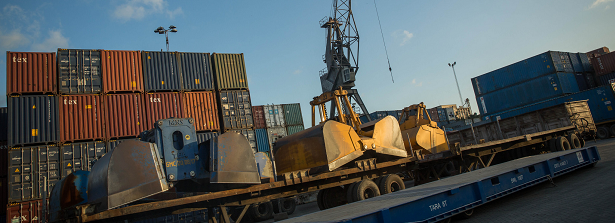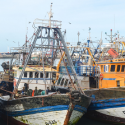Scoping report: “Improving the perspective for regional trade and investment in West Africa”

Realizing that enhanced intraregional trade and investment may contribute to inclusive economic development in West Africa, the Netherlands’ Ministry of Foreign Affairs (MFA) has raised knowledge questions on how to increase its effort to support West African integration and cooperation. This is coherent with the Netherlands policy framework for Aid, Trade and Investment and the key Dutch policy objectives to promote sustainable economic development and to enhance food security.
It was against this background, initiated by the Netherlands’ Ministry of Foreign Affairs (MFA) and funded by the Food & Business Knowledge Platform (F&BKP), a scoping study was carried out by a consortium of knowledge institutes comprised of the African Studies Centre Leiden (ASCL), LEI – Wageningen UR (LEI-WUR), and the European Centre for Development Policy Management (ECDPM).
The overall objective of the study was to contribute a more contextualized comprehensive picture of the Netherlands’ government ongoing cooperation with West Africa and the perspective in terms of policy options for strengthening its effectiveness and coherence by giving more emphasis to the promotion of intraregional trade and investment.
The scoping study was built upon 6 inventories:
- Regional knowledge institutes
- Literature on regional trade and investment relations in West Africa
- Statistics on regional trade in West Africa
- Dutch bilateral policies in West Africa
- Existing policy initiatives
- Trade-related policy options in regional trade and investment in West Africa
One of the conclusions of the scoping study was to strengthen regional food sovereignty and regional food production, and investing in a self-evident and cheaper system of food trade across the West African borders, with extra attention for the three landlocked countries (Burkina Faso, Mali, and Niger) and their major cities. Another conclusion was that the share of intra-ECOWAS trade value was much lower than that of extra-ECOWAS trade value, with extra-ECOWAS trade increasing rapidly. Agricultural products (edible and non-edible) made up for only about 10% of intra-ECOWAS trade. Much trade of agri-food products has taken place with trade partners outside the region and a large proportion of agri-food trade is believed to be informal unregistered trade.
Among many recommendations, one was not overstretch the Netherlands’ ability to support regional integration of trade and investments in West Africa as a whole; the Netherlands should focus on areas and domains where it has a clear added value, and an acknowledged track record of past performance and proven innovative abilities such as agro-logistics. It was recommended that the Netherlands should strengthen synergies between different policy areas and public-private partnerships. The Netherlands should focus their own aid and trade support to West Africa’s regionalization agenda initially on the Central regional, targeting trade in food products with a focus on North-South and South-North linkages between Côte d’lvoire, Ghana and Burkina Faso.
A policy brief based on the final report of the scoping study that is produced by the African Studies Centre Leiden (ASCL) is coming soon.
End of August, the policy brief derived from the scoping report was made available by the African Studies Center.
- Please download the policy brief in English “West Africa Scoping study Policy Brief”.
- Veuillez cliquer ici pour obtenir le document d’orientation en français “Afrique l’Ouest Etude exploratoire Document d’Orientation”.






